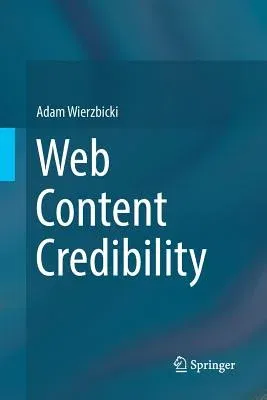Adam Wierzbicki
(Author)Web Content Credibility (Softcover Reprint of the Original 1st 2018)Paperback - Softcover Reprint of the Original 1st 2018, 24 January 2019

Qty
1
Turbo
Ships in 2 - 3 days
In Stock
Free Delivery
Cash on Delivery
15 Days
Free Returns
Secure Checkout

Print Length
221 pages
Language
English
Publisher
Springer
Date Published
24 Jan 2019
ISBN-10
3030085422
ISBN-13
9783030085421
Description
Product Details
Author:
Book Edition:
Softcover Reprint of the Original 1st 2018
Book Format:
Paperback
Country of Origin:
NL
Date Published:
24 January 2019
Dimensions:
23.39 x
15.6 x
1.27 cm
ISBN-10:
3030085422
ISBN-13:
9783030085421
Language:
English
Location:
Cham
Pages:
221
Publisher:
Weight:
335.66 gm